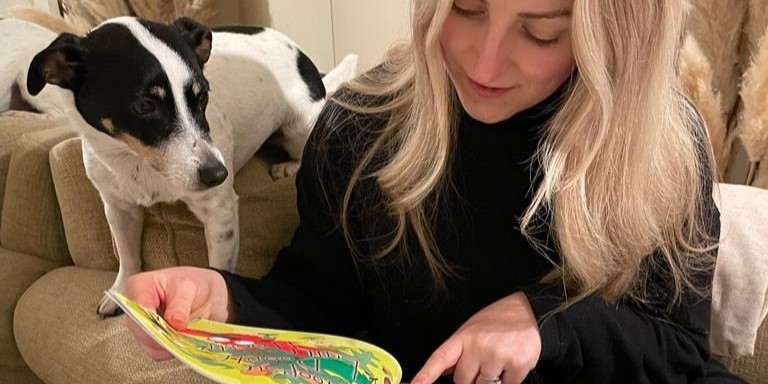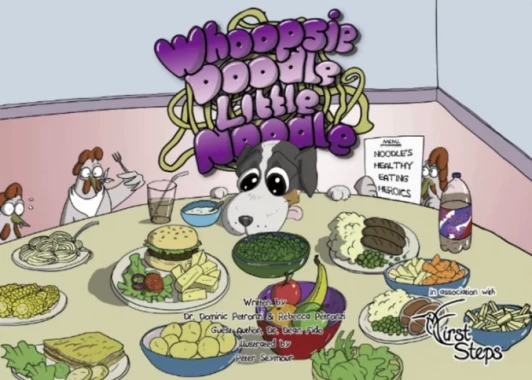Raising Awareness of Eating Disorders/Disordered Eating in Children Through a Co-Created Storybook Approach
The issue of eating disorders and disordered eating (ED/DE) is becoming more prevalent in younger children and prevention efforts are required in the formative years. However, existing approaches are often resource intensive, focus more on ‘healthy eating’ and are not necessarily embedded within everyday education. In some cases, parents and educators have received limited training in this area.
Since June 2019, Dr Dominic Petronzi has been working in collaboration with First Steps ED (a Derby City based eating disorder charity), and on March 4th (2021; World Book Day) Dominic, Rebecca Petronzi and Dr Dean Fido – alongside the charity – launched a children’s book surrounding healthy eating that supports people who are living with eating disorders. As well as producing a resource to support initiating conversations, the storybook aimed to reduce stigma, improve access, and reduce health inequalities. This work was supported by the Derbyshire Foundation and a free downloadable version is available:
–
The storybook (32 pages in length, illustrated pages & written in rhyming verse) raises awareness of eating disorders, disordered eating, and healthy eating by embedding knowledge and understanding taken from research and knowledge from experts in the area. The storybook is based on the learnings of the protagonist (Noodle) who demonstrates concern for a boy called Mason who is struggling with food and makes a series of mistakes: mistake #1 is based on Noodle drawing attention to Mason not wanting to eat, mistake #2 is based on choosing to eat only 1 food source (chips), and mistake #3 is based on Noodle again drawing attention to Mason who is negatively judging himself.
The storybook has received positive stakeholder feedback, and this widening participation was also endorsed by NHS England Midlands Children and Young People Quality Improvement Team who recommended further afield across clinical eating disorder services for children and young people. The storybook was made available to every primary school across neighbourhood, place and at system level (district, city, and county) and supported by the five NHS CAMHS eating disorder services in the East Midlands. First Steps ED provided a box of books to every school and asked them to use the resource in class reading lessons and to also allow children to take the storybook home to allow their parents to read it with them.

More recently, Dr Dominic Petronzi, Dr Charlotte Scott, Dr Emma Sharpe, and Rebecca Petronzi implemented the storybook in a qualitative study to explore parent, educator, and practitioner perceptions of this resource. The findings suggest that ED/DE in children is a concern, and the storybook was viewed as a versatile and valued resource that could support initiating conversation with children, particularly in response to wider societal pressures and factors that can underpin their initial concerns and worries, such as social media.
–
The storybook was also viewed as raising awareness of ED/DE for parents/practitioners and children, although there is a need for the development of supplementary materials and activities that address other aspects of ED/DE.
The feedback obtained through this work and knowledge and insight provided through our continued collaboration with First Steps ED can be integrated into wider activities and resources to enhance the learning experience and provide structure for teachers and parents/carers. Our research indicates that primary care providers value the storybook approaches as a basis to approach conversations and discussions around particular topics. This aligns with the recent focus of Children’s Mental Health Awareness week (2024) with the theme of ‘My Voice Matters’ emphasising the need for resources to facilitate and foster positive communication.
Contributed by
Dr Dominic Petronzi – School of Psychology, University of Derby
Dr Charlotte Scott – School of Psychology, University of Derby
–
Dr Emma E. Sharpe – School of Psychology, University of Derby
Rebecca Petronzi – Arts, Humanities and Education, University of Derby



